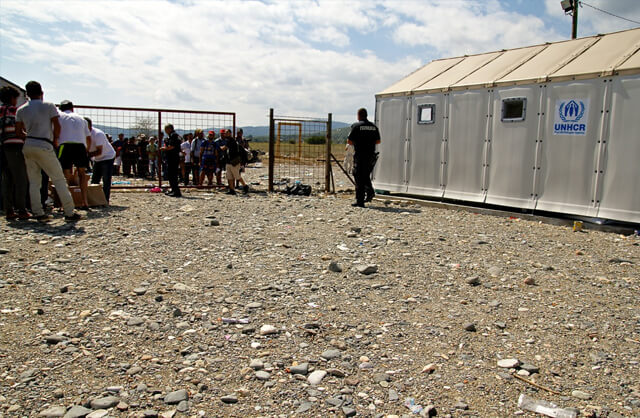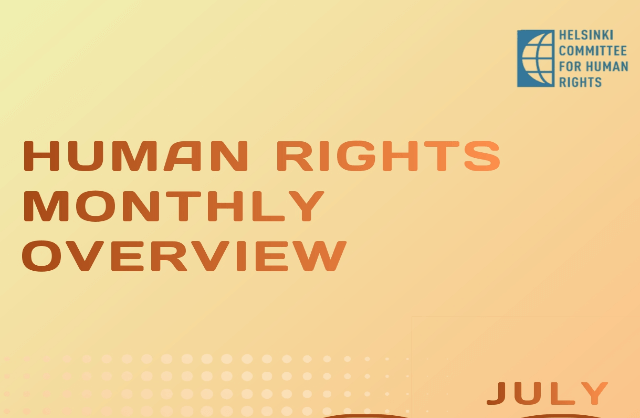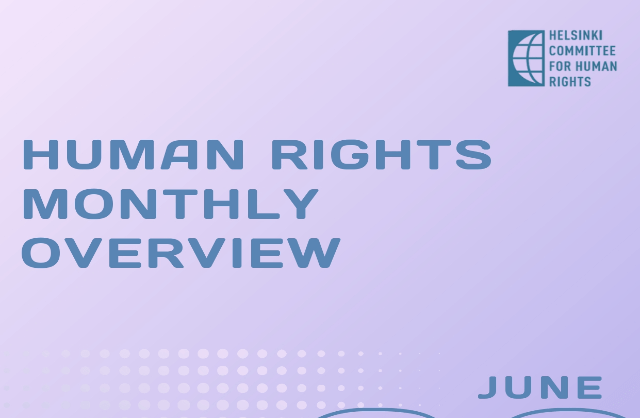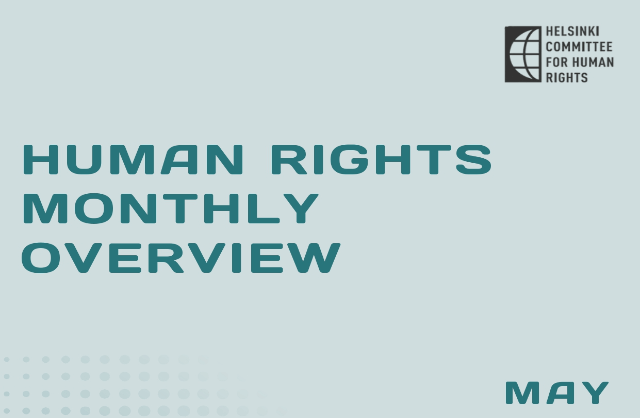The situation at the border crossings Gevgelija and Kumanovo for the period 07.11.2016 – 13.11.2016
November 23, 2016

The weekly report on the situation at the border crossings Gevgelija and Kumanovo includes the following topics: Available facilities and conditions at the camp and Institutional treatment.
Gevgelija
Available facilities and conditions
At the start of the week, the number of refugees amounted to 98, but it declined by the end of the week.
At the start of the week, the Italian Ambassador Mr. Carlo Romero paid a visit to the camp and got acquainted with the situation there. Towards the end of the week, a German delegation also visited the camp.
The hygiene in the camp is at an alarming level due to the janitors’ refusal to proceed with their work, in sign of protest.
Institutional treatment
A total of 10 refugees who had been residing in the camp for 8 months already, have been transported to Greek territory at their own request. With this, the number of refugees in the camp dropped to 94.
On 10.11.2016, a woman originating from Iraq arrived at the camp, because in an attempt to cross the Macedonian-Serbian border she got separated from the rest of her family who ended up transported to the Republic of Greece. The woman arrived alone in the camp in Gevgelija from the camp in Tabanovce, as she was not allowed to stay in the Tabanovce. She did not express desire to seek asylum, but to be simply taken back to Greece, to get reunited with her family. She was accommodated for the night, and the next day she was transported to Greek territory.
On 11.11.2016, 7 refugees were brought to the camp with a police vehicle, 5 of whom were from Algeria, one man was from Syria and one was from Sudan. They were caught at the railway station in Skopje, and were taken back to Gevgelija. They had been transiting through the Balkan countries for more than 6 months, and had spent around 20 days in the vicinity of the camp in Tabanovce, which is where they got their food from. They did not express intent to seek asylum, although they were acquainted with the procedure and the right to seek asylum. All of them had family members who had already arrived in various countries around Europe. The people from Syria and Sudan were registered, as they were the only ones from the entire group who possessed documents for personal identification. After they were provided with medical and humanitarian help, they were transported back to Greek territory.
The janitors in the camp had not been paid their salary for two months already, which is why they openly expressed their dissatisfaction and protested by not doing their tasks. Towards the end of the week, after they were paid their salary for one month, they stopped the protest and cleaned the camp.
Kumanovo
Available facilities and conditions
The number of refugees in the camp varies on daily basis. The official number of refugees accommodated in the camp is believed to be around 60, while the unofficial one varies from 100 to 120, with as much as 150 on certain days. Most of the refugees are staying in makeshift camps in the vicinity of the transit camp Tabanovce. The movement of refugees in the Kumanovo villages increases on daily basis.
The hygiene in the camp has significantly worsened, partially due to the abundant rainfall during the week and partially due to the janitors’ refusal to do their job in sign of protest for not being paid their wages.
Institutional treatment
At the start of the week, 12 refugees in the camp who are also asylum seekers, were transported to the Shelter Center for Asylum Seekers in Vizbegovo. Due to their relocation, 9 more refugees submitted their asylum requests.
A large number of refugees from the villages in the vicinity come to the camp to get food and clothes, whereby they leave the camp. Some are granted access, some are not. Certain groups say that they come from the Republic of Serbia, i.e. that they had been denied access by the Serbian security forces near Lojane and Sopot. Many of them report being molested by the Serbian police.
NGOs organize courses in foreign languages (English, German) on daily basis, which are also attended by adults.
Situation in the Shelter Centers in the Republic of Macedonia
The number of refugees in the Shelter Centers is not available.
Irregular Migration
In the daily bulletins of the Ministry of Internal Affairs, there is no single registered incident related to refugees or migrant-smuggling.


